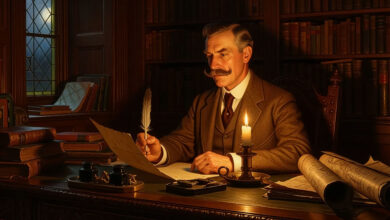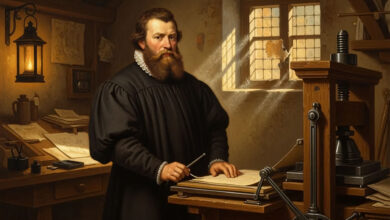Katherine Coleman Goble Johnson was born on 26 August 1918 in White Sulphur Springs, West Virginia, United States. She became a pioneering mathematician whose work at NASA was instrumental in advancing the United States space programme. Her extraordinary skills in calculations and her determination to break racial and gender barriers made her one of the most significant figures in the history of space exploration.
From a young age, Katherine displayed an exceptional aptitude for mathematics. Growing up in an era where educational opportunities for African Americans were severely limited, her parents, Joshua and Joylette Coleman, ensured that she had access to the best schooling available. She completed high school at just 14 years old and went on to attend West Virginia State College, where she excelled in mathematics. She was mentored by distinguished mathematician W. W. Schieffelin Claytor, who encouraged her to pursue research in the field. In 1937, at just 18 years old, she graduated summa cum laude with degrees in mathematics and French.
After completing her studies, Katherine took up a teaching position at a segregated school in Virginia. However, her passion for mathematics and research never waned. In 1939, she became one of the first African American women to integrate West Virginia University’s graduate programme after being selected to enrol in the school’s mathematics programme. Although she did not complete her degree at the time due to family commitments, this opportunity was a significant step towards her groundbreaking career.
Katherine’s professional journey took a remarkable turn in 1953 when she was hired by the National Advisory Committee for Aeronautics (NACA), the predecessor of NASA. She joined the West Area Computing Unit, a segregated group of African American women mathematicians who performed complex calculations essential for aeronautical research. Her exceptional skills quickly set her apart, and she was assigned to work with engineers in the Flight Research Division.
Her contributions became increasingly vital as NACA transitioned into NASA in 1958. At a time when human spaceflight was in its infancy, Katherine’s calculations were essential for ensuring the success of key missions. She played a crucial role in the trajectory analysis for America’s first human spaceflight, Alan Shepard’s 1961 suborbital mission. Her ability to accurately compute launch and landing trajectories made her an indispensable member of the space programme.
Her most notable achievement came in 1962 during John Glenn’s orbital mission. As NASA prepared for this historic flight, Glenn insisted that Katherine personally verify the calculations performed by the newly introduced electronic computers. Trusting her expertise over that of the machines, Glenn famously requested, “If she says they’re good, then I’m ready to go.” Her calculations confirmed the accuracy of the mission’s trajectory, ensuring a successful orbit and safe return.
Katherine continued to work on several significant space missions, including the Apollo programme. She was involved in calculating the trajectory for Apollo 11’s historic moon landing in 1969, an event that marked a monumental achievement in human space exploration. Her contributions extended to the Apollo 13 mission, where her calculations helped guide the crew safely back to Earth after an oxygen tank explosion jeopardised the mission. She also played a role in the early planning of the Space Shuttle programme and Earth resources satellites.
Despite her critical contributions, Katherine’s work remained largely unrecognised for many years due to the racial and gender biases prevalent in the 20th century. However, she remained committed to her work, often stating that she simply saw herself as a mathematician doing her job. Her perseverance and dedication paved the way for future generations of women and African Americans in science, technology, engineering, and mathematics (STEM) fields.
Katherine retired from NASA in 1986 after an illustrious 33-year career. It was only in later years that she began receiving the widespread recognition she deserved. In 2015, she was awarded the Presidential Medal of Freedom, the highest civilian honour in the United States, by President Barack Obama. This accolade recognised her invaluable contributions to space exploration and her role in breaking racial and gender barriers.
Her story gained further prominence with the release of the 2016 film “Hidden Figures,” which highlighted the contributions of African American women at NASA. The film, based on the book by Margot Lee Shetterly, brought Katherine’s achievements to a global audience, inspiring countless individuals to pursue careers in science and mathematics.
Even in retirement, Katherine remained passionate about education and advocacy for STEM fields. She encouraged young people, particularly girls and minority students, to embrace mathematics and science, emphasising the importance of perseverance and curiosity. Her legacy continues through scholarships and educational programmes dedicated to advancing diversity in STEM. Katherine Johnson passed away on 24 February 2020 in Newport News, Virginia, at the age of 101. Her remarkable life and contributions left an indelible mark on the world of space exploration and scientific progress. She is remembered as a trailblazer who defied societal norms and used her intellect to advance humanity’s reach into space. Her impact endures, not just through the missions she helped make possible, but through the countless individuals she inspired to pursue their dreams in science and beyond.




